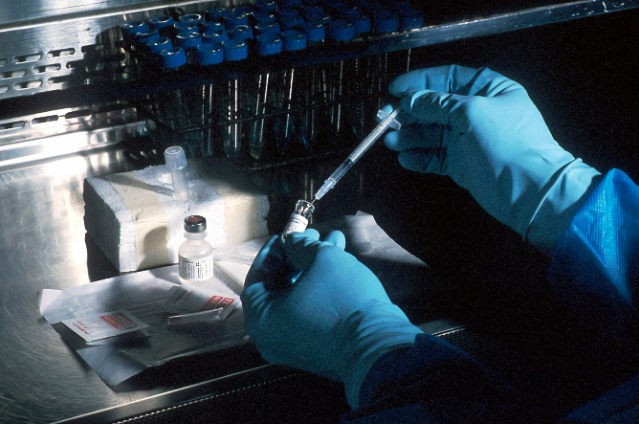
Photo by National Cancer Institute on Unsplash
The World Health Organization (WHO) has officially classified Mpox as a public health emergency of international concern. This significant declaration follows a sharp increase in the disease's spread within the Eastern Democratic Republic of Congo (DRC) and its alarming appearance in neighbouring countries.
During a recent press conference, WHO Director-General Tedros Adhanom Ghebreyesus emphasized the gravity of the situation. He explained that declaring a public health emergency of international concern represents the highest level of alert according to international health regulations. "Today, the Emergency Committee convened and advised me that the situation meets the criteria for a public health emergency of international concern. I have accepted their recommendation," Tedros stated. He reiterated that this level of alarm is the most severe under the global health law by signalling the urgency of coordinated international action.
The WHO’s stance aligns with the advice from both its Emergency Committee and the Africa Centres for Disease Control and Prevention (Africa CDC). The Africa CDC had already declared the situation a public health emergency of regional security by emphasizing the serious threat mpox poses to public health in Africa.
According to recent reports from the Africa CDC, mpox cases have been identified in ten African nations this year. Alarmingly, over 96 percent of these cases are concentrated in the Democratic Republic of Congo highlighting the epicentre of this outbreak. This situation underscores the need for heightened surveillance and rapid response measures to prevent further spread of the disease across the continent and beyond.
Rising Concerns Over Mpox Outbreak in Africa
The recent surge of mpox cases across Africa has raised significant alarm among health officials. According to the Africa Centres for Disease Control and Prevention as mpox has been identified in ten African countries this year with a staggering 96 percent of these cases concentrated in the Democratic Republic of the Congo (DRC).
The Threat of a New Strain
Dr. Tedros Adhanom Ghebreyesus, the Director-General of the World Health Organization (WHO) had expressed deep concern over the emergence and swift proliferation of a new strain of mpox in eastern DRC. He highlighted the troubling fact that this strain has also been detected in neighbouring nations that had not previously reported any cases of mpox. This situation poses a serious risk of further transmission not only within Africa but potentially beyond its borders.
The Need for Coordinated Action
To effectively manage and contain this outbreak, Dr. Tedros emphasized the necessity of a coordinated international response. He noted that alongside the new outbreak of mpox, there are ongoing outbreaks of other strains in various regions of Africa. The urgency for a unified global effort is clear as such collaboration is crucial to halt these outbreaks and protect lives.
WHO's Ongoing Efforts
The WHO has been proactive in addressing the mpox situation in Africa by continuously raising awareness about the outbreak. Dr. Tedros referenced his recent decision to convene an emergency committee to assess the escalating cases in the DRC. He assured that the WHO is actively engaged on the ground by collaborating with affected countries and those at risk to combat the mpox outbreaks. This includes providing support to laboratories for the sequencing of viral samples, which is vital for understanding and controlling the spread of the virus.
The unfolding mpox crisis in Africa highlights the importance of global health cooperation and swift action to mitigate the impact of infectious diseases.
WHO's Ground Efforts in Addressing Mpox
The World Health Organization (WHO) is actively engaged in assisting countries impacted by mpox as well as those at risk of outbreaks through its various country and regional offices. The WHO Chief highlighted the organization's multifaceted approach in combatting the disease, which includes the provision of essential equipment for analyzing blood samples to confirm mpox cases.
Support for Laboratories and Case Management
In addition to diagnostic support, WHO is enhancing laboratory capabilities to sequence viral samples. This effort is crucial for understanding the virus's spread and evolution. The organization is also involved in critical activities such as case investigation, contact tracing, and risk communication which are fundamental components in managing and containing the outbreak. Community engagement is another key focus by ensuring that the public is informed and involved in the response efforts.
Training and Vaccine Access
WHO is committed to training healthcare workers and providing clinicians with the necessary resources to deliver appropriate care to those affected by mpox. Furthermore, the organization is facilitating access to vaccines for countries and assisting in the development of strategies for their effective rollout. This comprehensive support is vital in enhancing the capacity of healthcare systems to respond to the ongoing crisis.
Funding and Resource Allocation
To facilitate these efforts, WHO has established a regional response plan that initially requires $15 million. The organization has already allocated $1.45 million from its Contingency Fund for Emergencies and intends to release additional funds shortly. WHO is also reaching out to potential donors to secure the remaining funds necessary for the full implementation of the response plan.
Commitment to Global Coordination
Looking ahead, WHO is dedicated to coordinating a global response to mpox by collaborating closely with affected nations and utilizing its on-the-ground presence. The organization's primary objectives are to prevent further transmission and to provide treatment for those infected and ultimately save lives. The WHO Chief expressed gratitude to the Emergency Committee for their guidance and efforts in addressing the crisis.
The situation has become increasingly urgent, particularly in Central Africa where mpox cases have surged since last September. Alarmingly, a strain of the virus has now been identified in neighbouring countries which is emphasizing the need for a robust and coordinated international response. The WHO had previously declared mpox, also known as monkeypox into a global emergency in 2022 after it spread to over 70 countries by highlighting the ongoing challenges posed by this infectious disease.
. . .
References:
